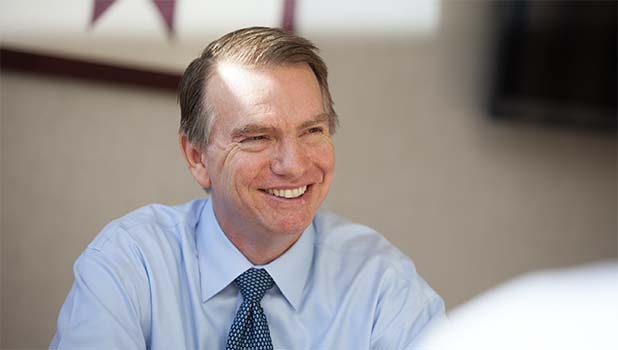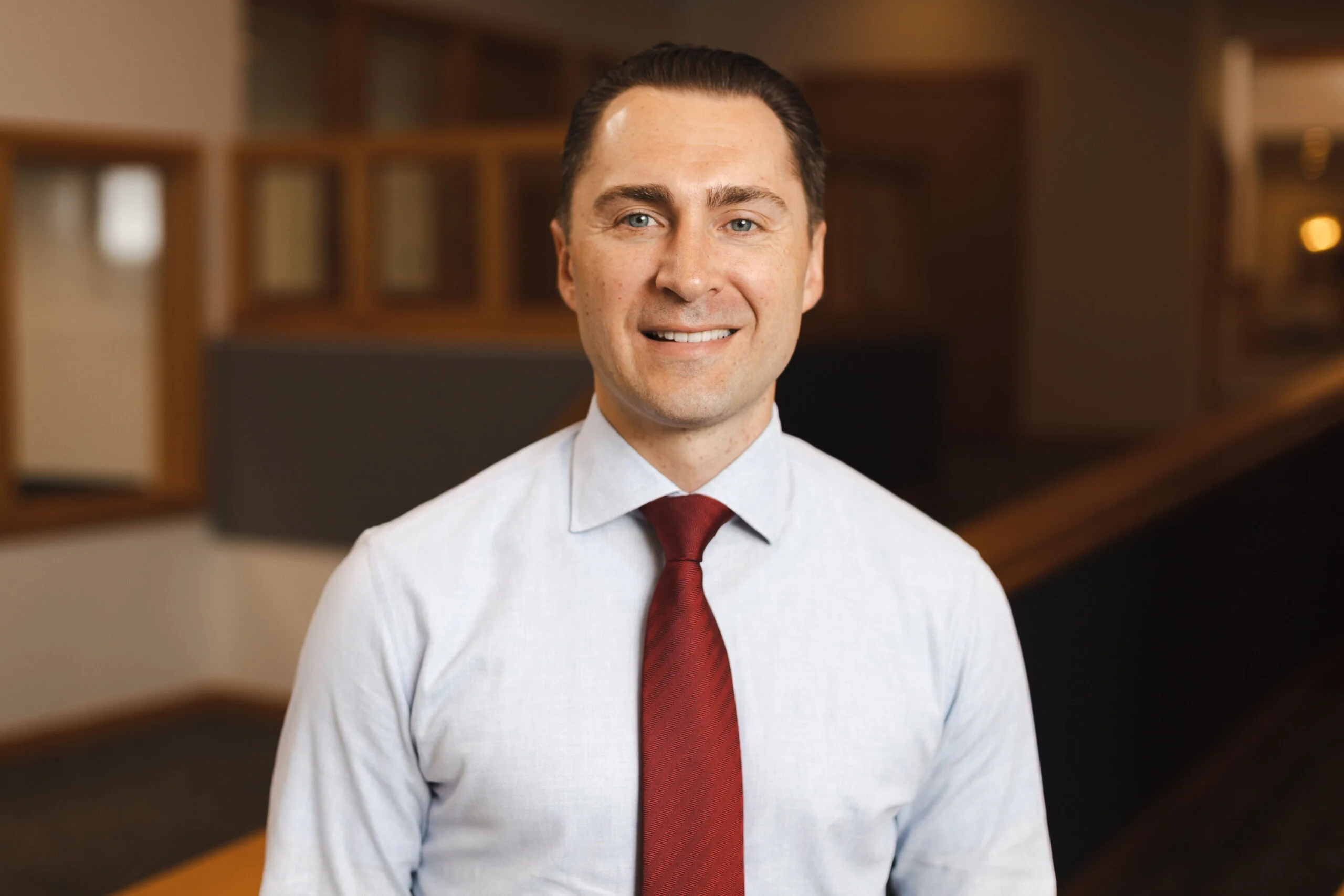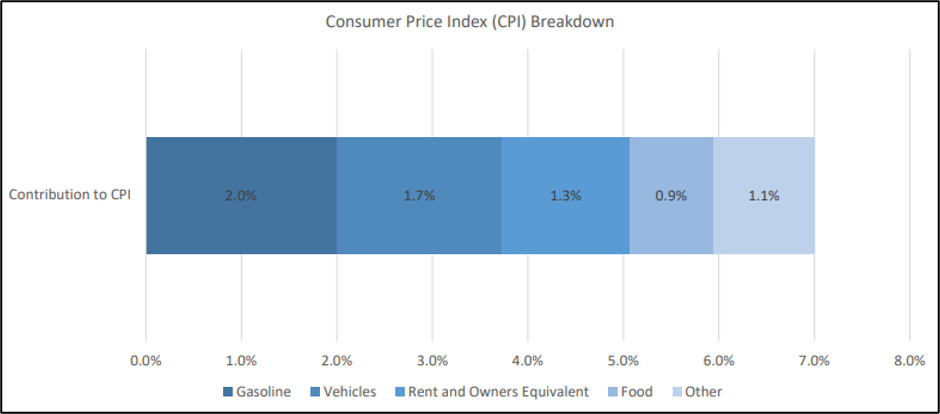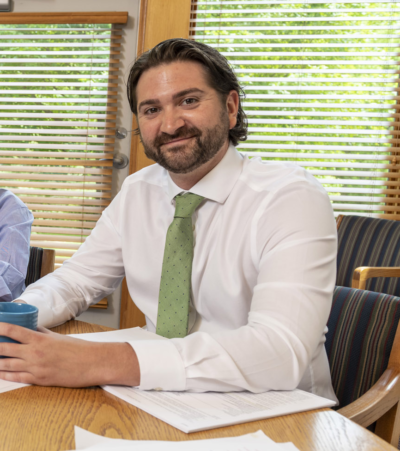Top 3 Takeaways: A Decade Later
TOP 3 TAKEAWAYS: A DECADE LATER
As we celebrate the 10-Year Anniversary of the FAM Small Cap Fund, Andrew Boord, Portfolio Manager, discusses the top 3 takeaways from the past decade.
As we celebrate the 10-Year Anniversary of the FAM Small Cap Fund, Andrew Boord, Portfolio Manager, discusses the top 3 takeaways from the past decade.
By John Fox, CFA®
CEO
After a terrific 2021, the stock market peaked on the first business day of the new year and has been declining ever since. So far, stocks are down 10% to 20% for the year depending on the index you watch.[1] The stocks of smaller companies have fallen the most.
While the current headlines are on Russia’s invasion of the Ukraine, we believe this is just one of multiple reasons for the drop in stock prices. As long-term stock investors, it’s always helpful to remember that price declines are part of the experience. I mentioned in a recent video we distributed that I have been at Fenimore for 26 years and in every one of those years, but one, the market had a decline of 5% or more during the year. This is a normal part of stock investing.

Of course, the reasons for the declines are always different. Today, we see three primary reasons:
1) High Valuations: After great market returns in 2021, stock valuations were at a high level. Because of low interest rates and many years of terrific returns, investors were willing to pay more for a dollar of earnings. This left stock prices at an all-time high and susceptible to a decrease as we turned the calendar. It’s impossible to know when a decline might occur, even if you think prices look high.
2) High Inflation: It’s very clear that inflation is not “transitory” using an often-quoted word from the Federal Reserve Chairman. We believe some parts of inflation will recede over time; other factors are here to stay. As a consequence, the Federal Reserve will be raising interest rates this year beginning at their March meeting in a few weeks. Answers to important questions like how high these rate increases will go and how fast they will occur are unknown. Interest rates have already moved up in anticipation of the Fed’s moves. The 30-year mortgage rate has increased from last year’s low of 2.67% to 4% today.[2] We should point out that while the Fed is raising interest rates, they remain low by historical standards.
3) Russia’s Invasion: Russia’s invasion of Ukraine creates a lot of uncertainty around politics and Europe’s state of affairs. From a purely economic point of view, Russia is a major producer of oil and other commodities like wheat. If this conflict continues, it may increase the prices of these commodities which will impact inflation. Higher inflation brings us right back to the previous point about an interest rate increase.
As you can see, there are a number of interrelated issues. However, even if it seems like one storm ends and another surfaces, this is usually the story in economics, politics, and markets. We have been through numerous international events like the Asian financial crisis in 1998 and two wars in Iraq.
Looking Ahead
At this time, we expect companies to grow earnings over 2021 levels and generate cash profits to invest in growth and return to shareholders through stock buybacks and increased dividends. As I stated in our year-end newsletter, “You don’t have to know the future, but you do have to know your companies.”
This gives us the confidence we need to execute our long-term strategy: investing in what we believe are quality businesses that meet our rigorous financial standards with strong leadership teams that can create value for our investors over time.
Please contact us at 800-721-5391 if you have questions or concerns. Thank you for the opportunity to serve you.
[1] FactSet as of 2/24/2022
February 3, 2022
By Marc Roberts, CFA®
Portfolio Manager, FAM Value Fund
The market volatility over the last several weeks has caused a great deal of uncertainty and has left many investors with unanswered questions. Questions we have heard include:

Volatility
Fenimore believes volatility creates opportunity. While we would all like a long-term, never-down performance experience, the reality is that markets do fluctuate — they always have — and it is through those fluctuations that some of the best opportunities present themselves.
At Fenimore, we are staying the course and will:
Inflation & Interest Rates
Over a prolonged period,[1] multiple decades, interest rates have remained low. While interest rates are up off the bottom, they are still very low by historical standards. These low rates typically support high valuations for financial assets like stocks and real estate.
Will they rise? Will inflation be permanent at a high level forcing interest rates to go up? These are questions that we ask ourselves frequently. Although we have no crystal ball to predict the level of inflation and interest rates, the recent headline inflation figure of 7% was elevated by several factors that may not reoccur:
The Consumer Price Index (CPI) measures the average change in prices over time paid by consumers for a basket of goods and services. The CPI chart below illustrates the 5 key categories that account for the 7% increase in inflation, with gasoline and vehicle prices representing more than 50% of the increase as of December 2021.[2]

As the aforementioned factors show a reduced impact, we would expect headline inflation readings to soften. On the other hand, we must acknowledge that not all factors impacting inflation figures will reverse. Higher wages, living expenses, and increased prices for value-added goods and services may be here to stay.
Supply chain factors should get resolved over time. Corporate management teams are reacting to the challenging environment — manufacturing locations are being reconsidered, capacity is being increased, and new sources of supply are being uncovered. In addition, pandemic-driven bottlenecks should unwind as businesses continue to adapt to today’s operating environment. Over time, as supply rebalances, inflationary pressures from the supply chain should ease.
The bond market seems to know all this, which is why forward-looking prices in the bond market have the inflation rate over the next 10 years estimated at about 2.5%.[3] We will continue to monitor these market-based expectations closely.
At Fenimore, we consider ourselves as your trusted investor. Our active investment approach since 1974 has helped us navigate multiple economic and financial market cycles. This proprietary, research-intensive process reinforces active oversight and incorporates:
In our experience, this proactive process helps us manage risk, especially during downturns, and can be one of the better ways to potentially grow wealth over the long term and outpace inflation. Our investment research team will continue to be active and take the long view and look for opportunities to invest more in what we believe are quality businesses — both among our current holdings and in enterprises we’ve admired and desired to own but were too richly priced for us.
We can never know the future, but our team knows our holdings — both the businesses and the management teams. This gives us the confidence we need to execute Fenimore’s long-term strategy: buying stock in what we deem to be quality businesses that meet our rigorous standards and are ideally positioned to do well in good times and persevere through adversity.
As advisors well know, the key is to have a comprehensive, understandable, long-term investment plan that can serve as a foundation — it is hard to stay the course if you do not know the course.
The better you understand what you are invested in and why, the more confidence you have in your investments. Fenimore’s distinctive, firsthand knowledge of the companies behind your investments is crucial and helps to maintain a long-term focus regardless of any stock market, economic, or geopolitical uncertainty.
Fenimore Asset Management: Fenimore, manager of the FAM Funds, has been providing differentiated investment management solutions for nearly five decades. Learn more about our unique history and how we partner. Call 800-721-5391.
[1] https://fred.stlouisfed.org/series/DGS10
[2] https://www.bls.gov/cpi/tables/supplemental-files/home.htm
John Fox, CEO
Investors often ask me, “How does Fenimore manage its investments so confidently when the future is so unsure?”
My answer,

For example:
We can never know the future, but our researchers know our holdings and their management. This gives us the confidence we need to execute our long-term strategy: buying stock in what we deem to be quality businesses that meet our exacting standards and are ideally positioned to do well in good times and persevere through adversity.
As fundamental value investors with a long-term mindset, the firsthand knowledge we have of our companies, their industries, and their competitors, delivers high-conviction portfolios.
Fenimore Asset Management: Fenimore, manager of the FAM Funds, has been providing differentiated investment management solutions for nearly five decades. Learn more about our unique history and how we partner. Call 800-721-5391.
Fenimore Asset Management’s 2021 newsletter features:

How does FAM Funds partner with its advisory clients? Senior Vice President Anne Putnam and Senior Director Bill McCartan share how we:

Kevin Gioia, CFA
Portfolio Manager, FAM Small Cap Fund
THE QUEST FOR QUALITY SMALL-CAP STOCKS
Fenimore’s Founder & Executive Chairman Tom Putnam, CEO John Fox, and President Deb Pollard discuss why we’ve held an annual meeting since 1987, our long-term succession plan, and recent news.
This excerpt is from our October 2021 FAM Funds Annual Shareholder Informational Meeting.